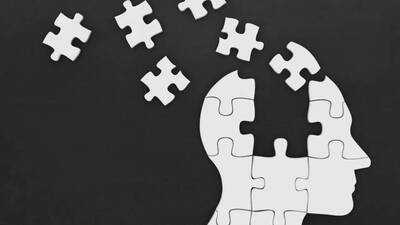Why do some memories are strangely vivid, while some seem to be blurry? For ages, the memory-mystery puzzled research ers, but now, a new research conducted at Boston University has shed light on this intriguing phenomenon. The study reveals that the brain prioritizes certain experiences based on their emotional significance and the process behind it, as scientists have named it, is ‘ memory enhancement ’.
 The study on memory enhancementThe study involved around 650 participants across ten experiments. The research reveals that the brain selectively strengthens those memories that occur near emotionally significant events, and this process is known as memory enhancement. In other words, the brain uses emotional events to stabilize fragile memories, to make them more accessible in the future.
The study on memory enhancementThe study involved around 650 participants across ten experiments. The research reveals that the brain selectively strengthens those memories that occur near emotionally significant events, and this process is known as memory enhancement. In other words, the brain uses emotional events to stabilize fragile memories, to make them more accessible in the future.
The research shows that emotional events trigger changes in brain activity, and as a result stabilize nearby fragile memories. The study revealed a principle called graded prioritization. As per the research, memories after an emotional event are strengthened depending on how powerful the event was. Similarly, memories before an event are rescued if they share similarities like matching color or themes.
 Implications from the study for daily life and learning The research’s insights go far beyond labs. The lead researcher of the team believes that the discovery has broad implications for both theory and practice.
Implications from the study for daily life and learning The research’s insights go far beyond labs. The lead researcher of the team believes that the discovery has broad implications for both theory and practice.

The mystery of why some memories stick while others fade is being unraveled, and this research suggests that memory isn’t as random as it was thought, it is selective and strategic. This mechanism can provide a wide range of implications in the field of healthcare and education. In essence, the memories our brain chooses to remember are those linked to emotional events.
The research shows that emotional events trigger changes in brain activity, and as a result stabilize nearby fragile memories. The study revealed a principle called graded prioritization. As per the research, memories after an emotional event are strengthened depending on how powerful the event was. Similarly, memories before an event are rescued if they share similarities like matching color or themes.
 Implications from the study for daily life and learning The research’s insights go far beyond labs. The lead researcher of the team believes that the discovery has broad implications for both theory and practice.
Implications from the study for daily life and learning The research’s insights go far beyond labs. The lead researcher of the team believes that the discovery has broad implications for both theory and practice. - Therapies related to memory disorders
- Learning and education
The mystery of why some memories stick while others fade is being unraveled, and this research suggests that memory isn’t as random as it was thought, it is selective and strategic. This mechanism can provide a wide range of implications in the field of healthcare and education. In essence, the memories our brain chooses to remember are those linked to emotional events.
You may also like

Jessie J issues savage response to very awkward fan question in gym

Premier League icon surprised by Man Utd transfer snub - 'He wanted to leave'

Epstein files: Elon Musk, Steve Bannon, Peter Thiel named among others in new documents; GOP calls it 'old news'

Ryder Cup USA stars shamelessly suck up to Donald Trump after disastrous start

Coronation Street's Debbie Webster discovers horrifying family truth amid dementia battle





